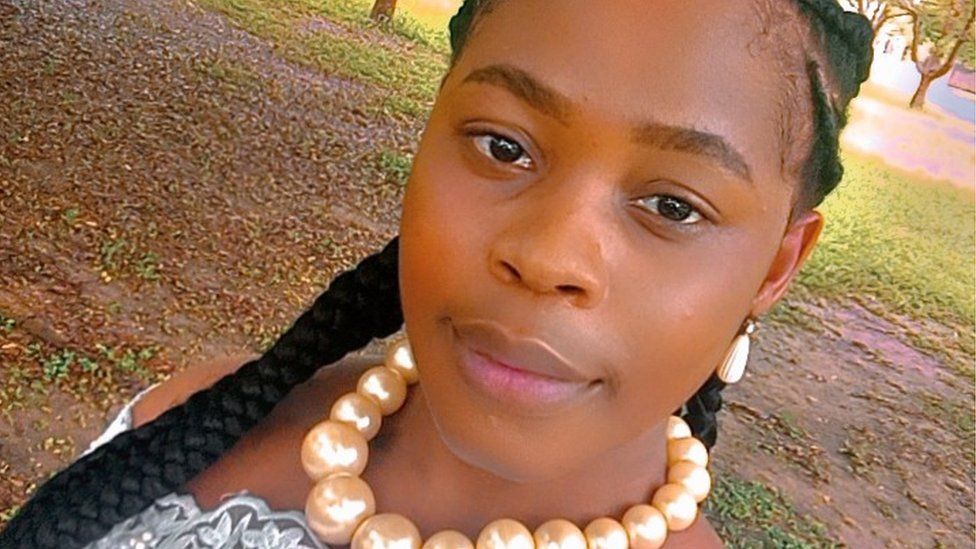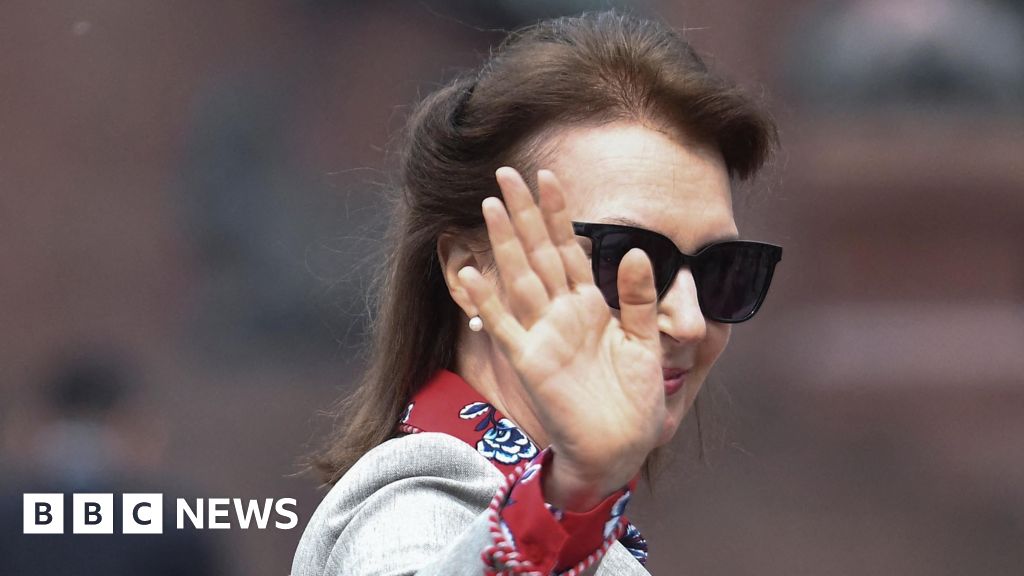ARTICLE AD BOX
 Image source, Elizabeth Stephens
Image source, Elizabeth Stephens
English undergraduate Elizabeth Stephens teaches both adults and school children in Abuja
By Nduka Orjinmo
BBC News, Abuja
Even though many Nigerians speak perfect English in everyday conversations with family, friends and colleagues, some are taking extra classes to learn to speak with a polished British accent.
It is the long school vacation in Nigeria and Elizabeth Stephens' regular students - the children of Abuja's rich and famous, who she teaches diction and phonetics at expensive private schools - are on holiday.
So now, she is holding Zoom classes for adults who want to "correct" their accent by speaking like the British so they can appear refined and classy.
Most Nigerians are multilingual and English is a second language for them, which affects how they speak the language. It is these peculiarities that students of Ms Stephens want to erase.
"When I speak [with a] Nigerian accent there is a gap, there is a vacuum… I need to improve, upgrade, by learning the British accent," says Sunday Israel, a motivational speaker who joins the class 10 minutes late.
Those in the session have paid 10,000 naira ($13; £10) and if they are diligent and hardworking, will be able to acquire a British accent at the end of six months of training, the tutor says.
"CAM-for-table (comfortable), UR-ffor-da-ble (affordable), VO-el (vowel)," she says smoothly, with the emphasis on the first syllable, while not pronouncing the w in vowel.
"Now, who wants to give it a go, you can unmute."
"Let me try," volunteers an enthusiastic Mr Israel.
"Com-FOR-table," he reads in a familiar tone - it is how many here pronounce the word.
"Go on," nudges Ms Stephens as the student waits for the assurance that he is on track.
"A-FOR-dable", he read with a slight trepidation in his voice, again pausing as he seeks out any form of approval from his teacher.
"Those are the Nigerian pronunciations. What we are doing here is to learn to speak like the British," says Ms Stephens before going over the words again.
"Nigerians don't apply intonation, that's why their pronunciation is always flat," she tells me later.
Some linguists note that speech tempo in Nigerian English tends to be slower than in British English, while others describe a general tendency for the stress in Nigerian English to be on the second syllable - sal-AD; mat-TRESS, as opposed to SA-lad; MAT-tress.
English is an official language in Nigeria, spoken by at least half of its 200 million people, according to several researchers - a legacy of British colonial rule until 1960.
Though Hollywood would have you believe that there is a single Nigerian-English accent - the heavy one that pronounces "hamburger" as "hamboga" - at least 500 languages are spoken in the country and they each influence how English is spoken here in different ways.
"When someone who already speaks Igbo begins to speak English, the Igbo lexical structure begins to interact with how they speak English," says linguist Dr Kingsley Ugwuanyi.
Most Nigerians, especially Yoruba speakers, also pronounce a hard H - as in "hotel" - for all words starting with the letter.
The letters P and F, which are alien to the Hausa phonological system, also influence how many northern Nigerians pronounce words containing them, so "police" can come out as "folice".
Dr Ugwuanyi maintains that it is impossible to learn an accent in school as language is something that people are socialised into through everyday interactions with family, friends and neighbours.
He adds that an accent is an identity and that learning to speak like someone else is a big identity crisis that is not just a Nigerian problem.
But Judith Onwuzurike, a phonetics teacher in Abuja, says putting an effort into speak like the British is a sign of respect.
"I get everyone's opinion but at least try to up your pronunciation," she says over the phone, her manicured British accent sounding like a member of the Royal Family.
Her clients are the rich politicians and top civil servants in the city who send their children to posh private schools recognisable from the British and American flags pinned outside the school gate.
Some of these schools have foreign teachers, while others hire tutors like Ms Stephens and Mrs Onwuzuruike to teach their students in preparation for life abroad.
"The job used to be very lucrative when we started," said Mrs Onwuzuruike, "but now there are too many of us."
Image source, Getty Images
Image caption,English language is taught up to university level in Nigeria but pronunciations learned in the classrooms rarely stick beyond the school environment
Diction teachers charge up to 7,000 naira ($9; £7) per child to teach three sessions for two hours a week to hundreds of students per school.
Ms Stephens is also a house agent and fashion designer, and when she is not teaching, she is scouring the city for empty apartments to rent to clients.
She is currently a first-year English student at the Open University and the money she gets from her many jobs goes into her upkeep and paying her fees.
Like Mrs Onwuzuruike, she has never been to the UK but considers herself an expert in the British accent which she learned at a one-year language school and has polished via online videos since then.
"Parents at the schools we teach want their children to speak like the British," she says.
"It gives them joy when their children speak with the accent because they travel out frequently."
What many here consider the British accent is the Received Pronunciation (RP) or standard British accent found in dictionaries and taught as a foreign language, devoid of regional UK accents.
Some Nigerians are also big on American English, first imported by broadcasters at private radio stations in Lagos in the mid-2000s before spreading to other cities.
Though not taught formally in most schools like the British accent, it is quite popular among young people and easily recognisable - with the disappearing Ts and the Rs that have become more pronounced in the last two decades.
Nigerian English has changed markedly in the last six decades and is arguably a fully formed language now, says Dr Ugwuanyi.
His landmark work in 2020 saw Nigerian-English words such as "sef", "ember months", "next tomorrow" and "danfo" introduced to the Oxford English Dictionary (OED).
He argues that after the British left, English continued to develop in Nigeria. So he does not understand why people like Mr Israel are learning to speak like the British.
"If you are speaking Nigerian English and another person American English, would we need an interpreter? If the answer is no then it is not important," he says.
Foremost Nigerian author Chinua Achebe put it best when he said: "The price a world language must be prepared to make is submission to different kinds of use."
Thankfully, by the time Ms Stephens asks me to speak in the class - after a rather elaborate introduction as a BBC broadcaster - most of the students have logged off, leaving just her, Mr Israel and me.
It is a big relief, as I have never been one to take care of my pronunciation.
When I began my journalism career as a sports broadcaster at a small radio station in Port Harcourt, I was told I lacked finesse in my pronunciation before I was presented with a Daniel Jones Cambridge Pronouncing Dictionary - the holy grail of speaking like the British.
I say "com-FOR-table", and would probably swallow my tongue saying "CAM-for-table", in the style of Ms Stephens's British English.

 1 year ago
14
1 year ago
14








 English (US)
English (US)